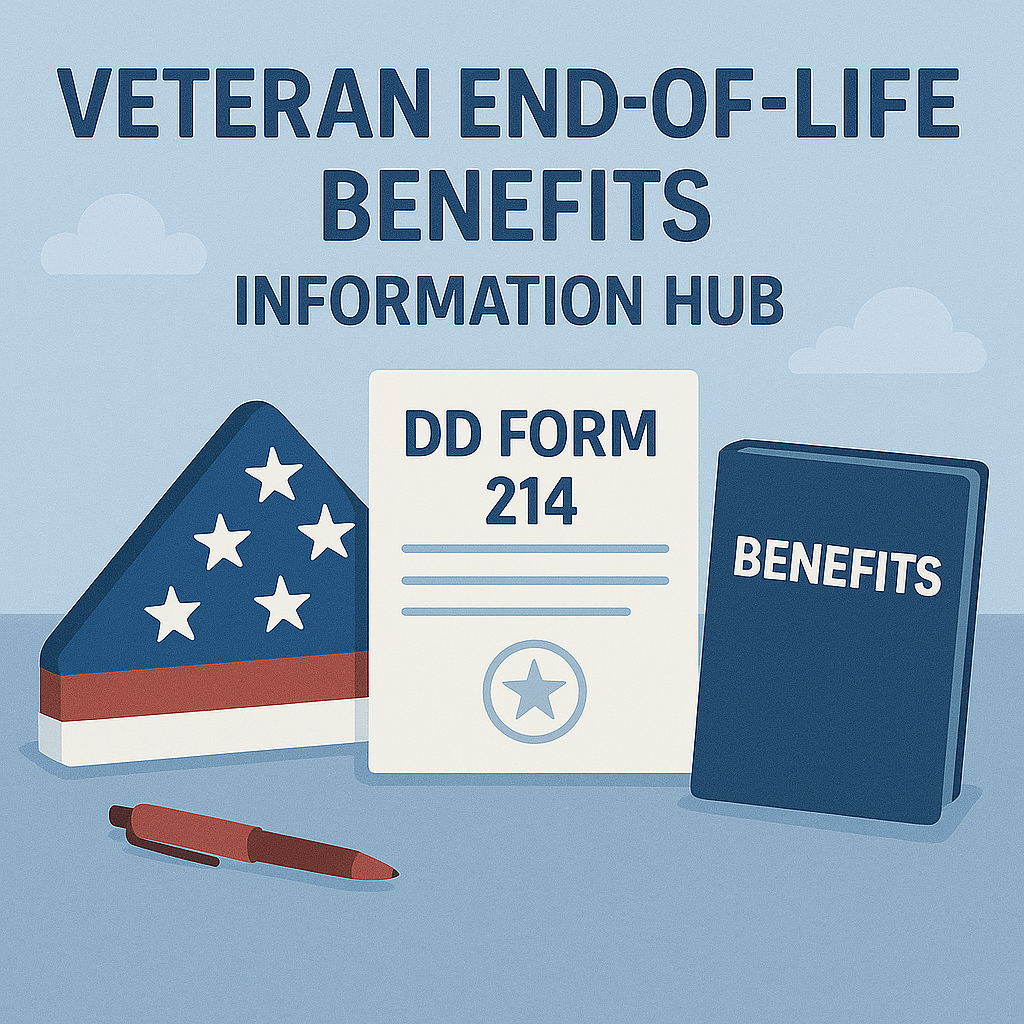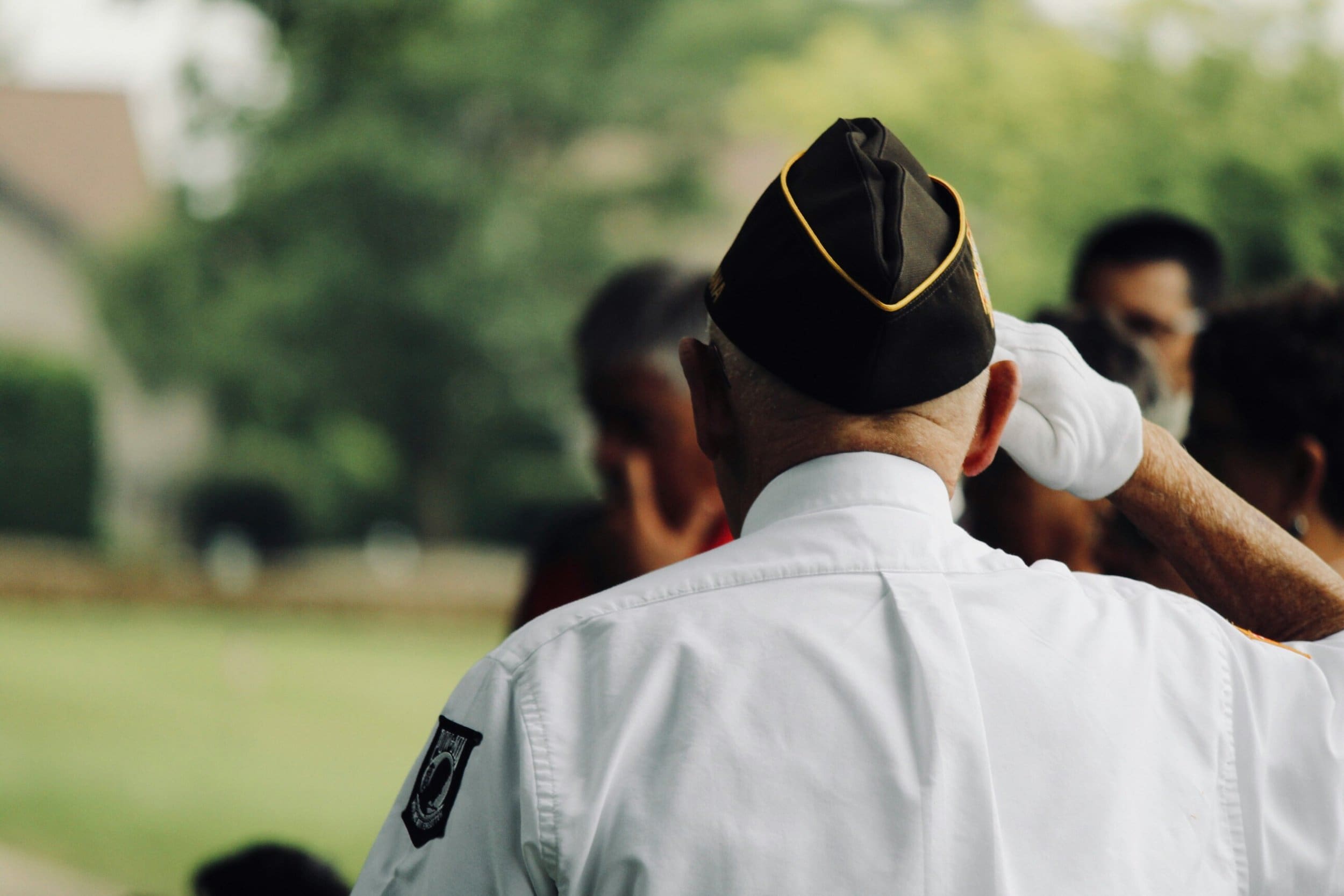Honoring Service, Securing Benefits
The Veterans End-of-Life Benefits Hub
Veterans and their families deserve dignity and support during life’s final chapter. This hub offers resources, guidance, and tools to help navigate end-of-life benefits, from burial assistance to survivor support, ensuring those who served are honored and cared for.

Key Things To Know
Veterans and their families may be eligible for a range of end-of-life benefits through the Department of Veterans Affairs (VA), including burial honors, financial assistance, and support services that recognize their service and sacrifice.
- Burial in a VA national cemetery is free for eligible veterans: This includes a gravesite, opening and closing of the grave, a government-issued headstone or marker, and perpetual care. Spouses and certain dependents may also qualify.
- Veterans can receive military funeral honors: This typically includes a flag-folding ceremony, the playing of Taps, and uniformed military personnel. Most funeral homes can help coordinate this through the VA or Department of Defense.
- A U.S. flag is provided at no cost: The VA supplies an American flag to drape the casket or accompany the urn. Families can request it through their funeral provider or local VA office.
- VA burial allowances may help cover funeral expenses: Reimbursement may be available for burial, funeral, and transportation costs—especially for service-connected deaths or when the veteran was receiving VA care.
- Pre-need eligibility can be established in advance: Veterans can apply before death to confirm eligibility for burial in a VA cemetery, helping ease decision-making for families later on.
- VA benefits do not automatically cover private cemetery costs: If a veteran chooses to be buried in a private cemetery, the VA may offer limited financial reimbursement but not full coverage.
- Headstones or markers can be requested for any burial site: Veterans buried in private cemeteries may still be eligible for a government-issued headstone, marker, or medallion at no cost.
- Survivor benefits may be available for spouses and dependents: These can include Dependency and Indemnity Compensation (DIC), Survivor’s Pension, or access to certain health care and educational benefits.
- Veterans may be eligible for hospice and palliative care through the VA: Care can be provided at home, in a VA facility, or through community providers that partner with the VA.
- Proper documentation is essential: To access benefits, families often need the veteran’s discharge papers (DD-214), proof of death, and other supporting documents.
Resources
You shouldn’t have to navigate veterans' end-of-life benefits on your own. Fortunately, we have resources to help simplify the process.
Veterans End-of-Life Benefits Related Content
Frequently Asked Questions About Veterans End-of-Life Benefits
Disclaimer: The information provided on this website and by Buried in Work is for general informational purposes only and should not be considered legal advice. Please consult with a qualified attorney or subject matter expert for advice specific to your situation.




